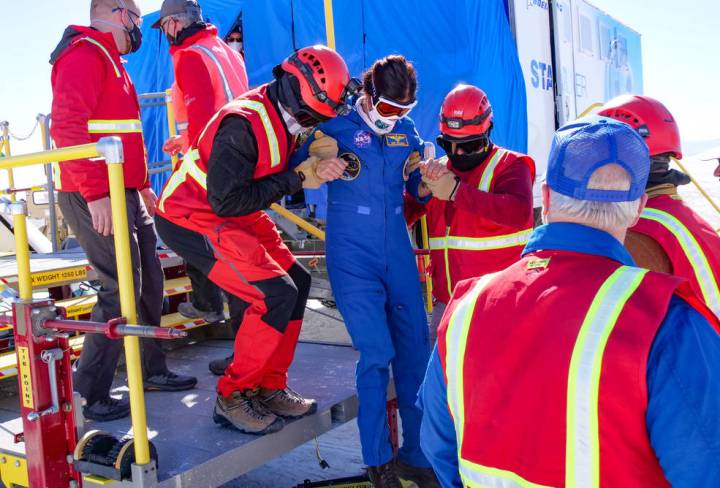
Boeing is working on a capsule for carrying crew into space called the Starliner, which will eventually be used by NASA to ferry astronauts to the International Space Station (ISS) and back. The company is gearing up for its second orbital flight test of the Starliner, though this test will be uncrewed. But future test flights and operational flights will be crewed, and that means that procedures need to be in place in case of emergency.
This week, NASA tested out these emergency procedures in a dress rehearsal at the U.S. Army’s White Sands Space Harbor in New Mexico, simulating what would happen if there were a medical emergency during a Starliner flight. This particular test simulated astronauts coming back from the ISS and landing, with a crew member who needed to be evacuated to a hospital by medical helicopter.
“We are working with Level 1 trauma centers that are fully staffed and have a full complement of doctors and nurses for a variety of conditions and disciplines, allowing us to plug into a network of the best very quickly,” said Michael Schertz, Boeing Starliner medical coordinator and a leader on the landing and recovery team, in a statement.
“While the likelihood of a medical incident requiring this level of care is small, we just don’t know enough to rule out the risk. As such, we prepare for the worst in the hope we never need it,” said Chris Ferguson, Boeing astronaut and director of Commercial Crew Mission Integration and Operations.
The Starliner will land on land, unlike SpaceX’s Crew Dragon capsule which lands in the ocean. It will come in for landing at one of five sites in the U.S., meaning each site needs to have a safety team prepared for any emergencies.
The test at New Mexico succeeded in locating the capsule and getting the crew member out in less than an hour, which is within the timeframe that the agency aims for.
“Commercial Crew Program missions do not end until crew members are safely out of the Starliner,” said Steve Stich, manager of NASA’s Commercial Crew Program. “Training exercises like this are essential to ensuring the entire team is prepared for every scenario.”
Editors' Recommendations
- Here are the new spacesuits astronauts will wear for tonight’s Starliner launch
- First crewed Starliner test needs good weather for launch. Here’s the forecast
- NASA gives Starliner’s first crewed launch the go-ahead
- Starliner spacecraft just took a major step toward first crewed flight
- NASA reveals target date for first crewed Starliner flight



